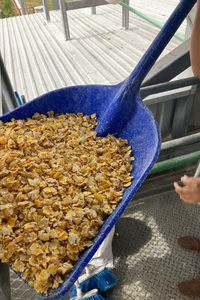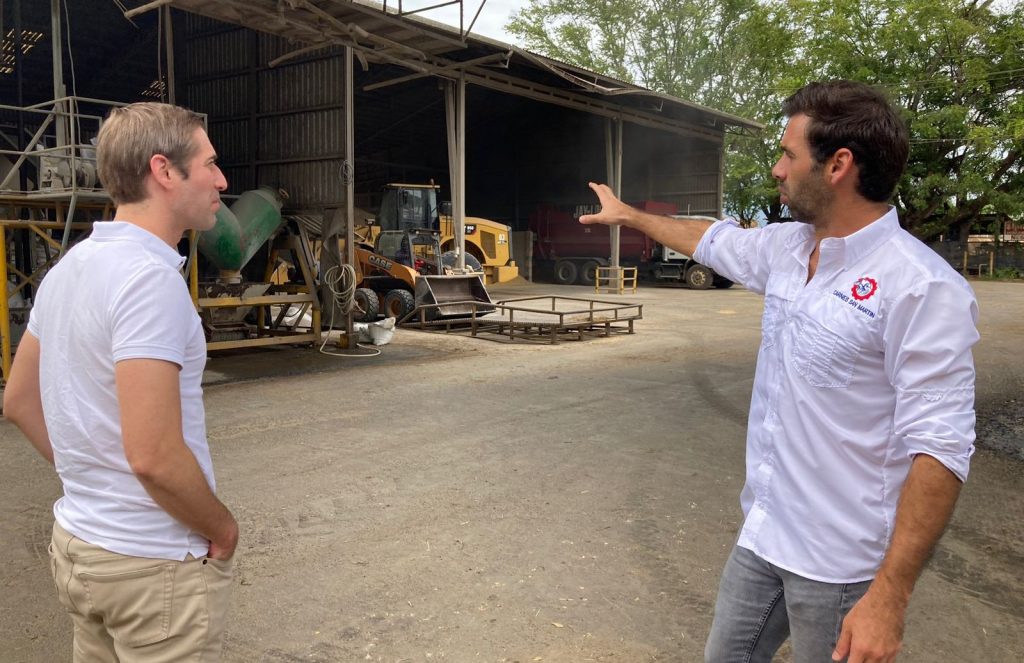To identify opportunities to increase corn and distiller’s dried grains with solubles (DDGS) exports to Nicaragua, U.S. Grains Council (USGC) staff in Latin America (LTA) recently met with relevant beef and poultry producers and association executives in the the poultry, beef and dairy industries in the country. Staff also used this as an opportunity to roll out the Corn Sustainability Assurance Protocol (CSAP) and the Sustainable Corn Exports (SCE) web platform.

The team held many meetings while in Nicaragua, including with four of the five largest beef producers, the beef exporters association (CANICARNE), the dairy producers association (CANISLAC), the poultry and feed producers association (ANAPA), two of the largest broiler producers and an egg producer.
“Along with coffee and gold, beef is among Nicaragua’s main exports. Feedlot production systems continue to grow in relevance in the country, making this sector one of the largest end-users of feed grains and with the highest potential for DDGS demand in the country. The meetings with CANICARNE and the individual beef producers allowed the Council to have a better understanding of the challenges and opportunities for their usage of DDGS, including the need for additional technical education, which the Council will address in the coming months,” said Alvaro Lopez, USGC LTA regional marketing specialist.
“The meeting with CANISLAC opened the door to marketing opportunities for DDGS among dairy producers in Nicaragua. Even though dairy operations are smaller, with a grass-based production system, producers are open to supplementing the rations with co-products. Therefore, some additional demand for DDGS could be realized.”
The poultry sector, largely dominated by one regional player and a Nicaraguan player, has navigated through challenging conditions since 2018 when social unrest affected different lines of the economy. Unlike the beef sector, broiler and egg production is mainly for domestic consumption. Therefore, production growth depends on the improvement of economic conditions for Nicaraguans.
Highlights from these meetings included: hearing about the growth expectations of the beef producers and exporters for the coming years and the additional corn and potential DDGS demand it implies; understanding the commitment of beef producers to sustainable and environmentally friendly production practices; and unveiling new opportunities to market DDGS.
During the visits, the Council presented the CSAP and the SCE platform. The beef producers in Nicaragua were receptive to the protocol as they recognize the growing trend toward sustainable practices in the market and how the Council’s protocol can add to their own commitments and strategies. After the meeting, one of the top five beef exporters registered in the platform to start receiving their Record of Sustainability (RoS) for their future U.S. corn shipments.
Moving forward, the Council will continue engaging and exploring opportunities to increase corn and DDGS usage across the beef, dairy and poultry industries in Nicaragua. The Council will also work closely with USDA’s Foreign Agricultural Service (FAS) to further collaborate on programs.
“Fostering trustworthy and valuable relationships with end-users of feed grains and co-products in every market is a must for the Council’s mission. It allows us to understand needs, opportunities and how we can add value to our customers while supporting additional demand for the products we represent,” said Ana Ballesteros, USGC LTA marketing director.
“Nicaragua’s blooming beef sector is the main reason why corn demand has almost doubled in the last five years. It is also the biggest opportunity to increase DDGS exports to the country. The Council will continue engaging heavily with this sector while also untapping other opportunities with the other livestock sectors.”
About The U.S. Grains Council
The U.S. Grains Council develops export markets for U.S. barley, corn, sorghum and related products including distiller’s dried grains with solubles (DDGS) and ethanol. With full-time presence in 28 locations, the Council operates programs in more than 50 countries and the European Union. The Council believes exports are vital to global economic development and to U.S. agriculture’s profitability. Detailed information about the Council and its programs is online at www.grains.org.

